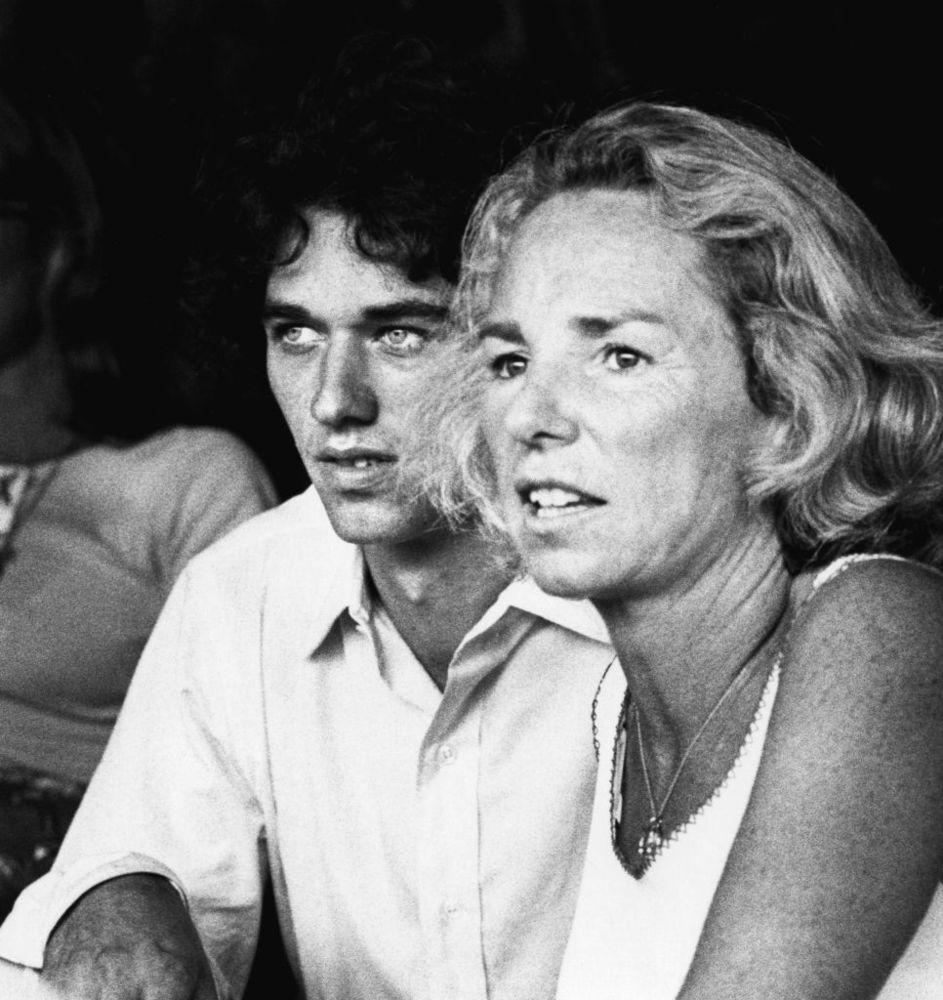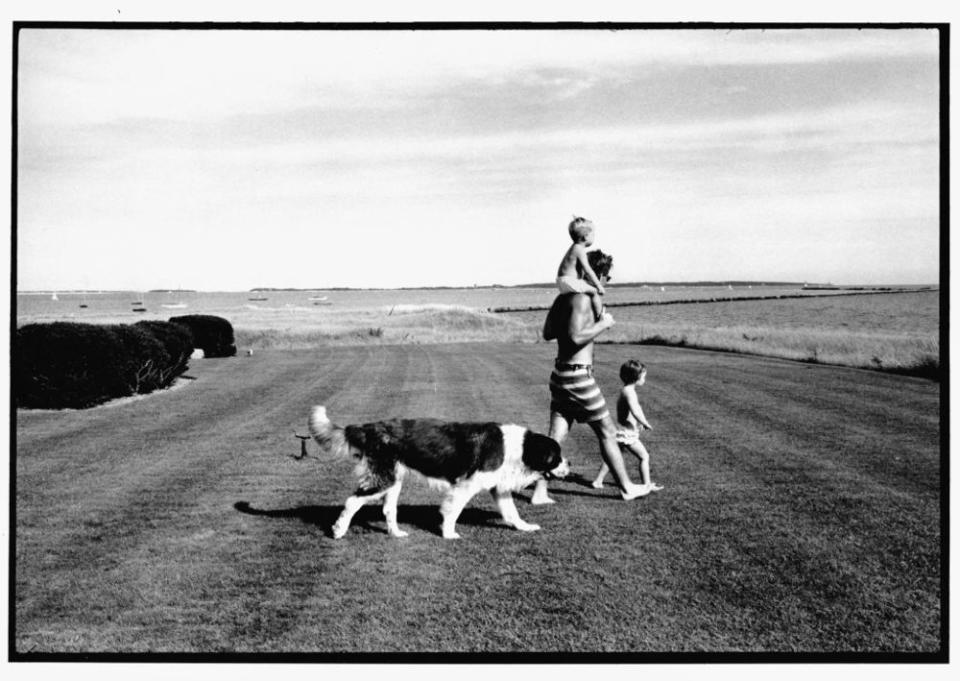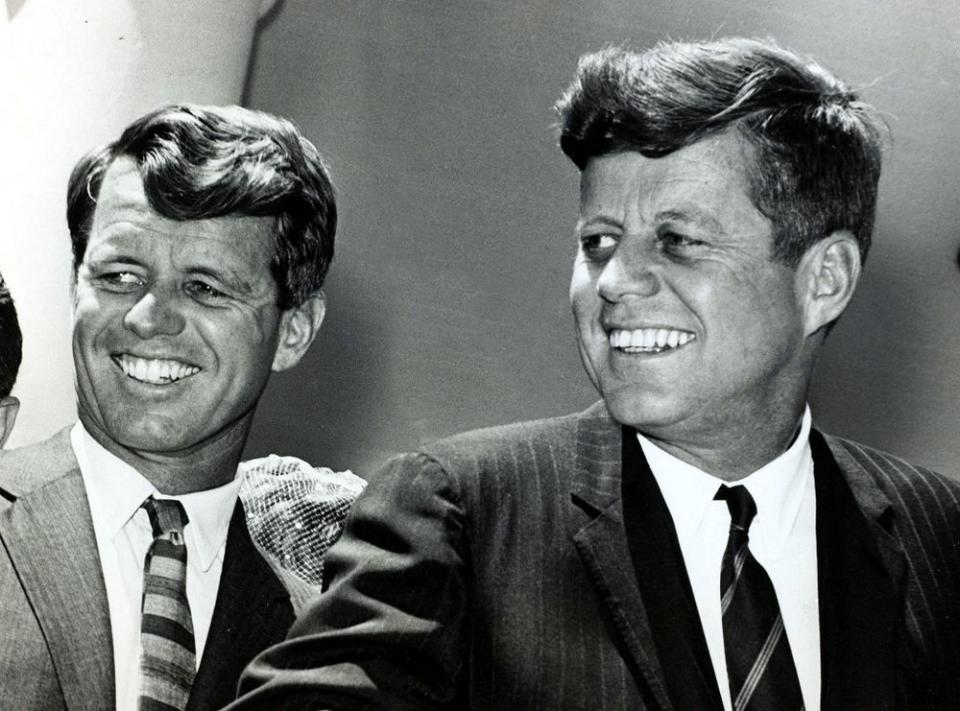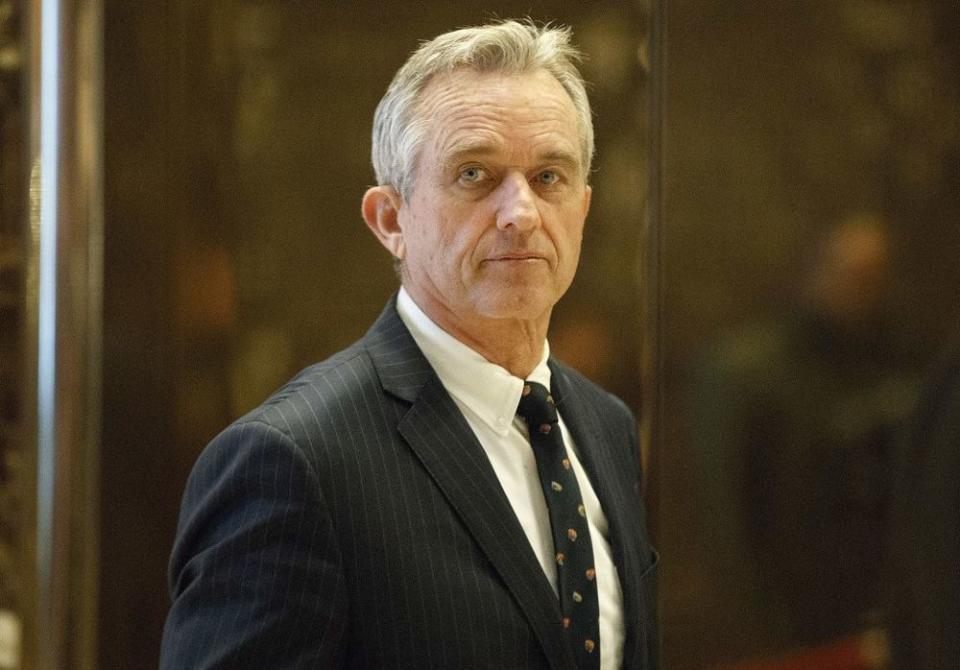RFK Jr. Paints Surprising Portrait Of Mom, Ethel: 'Her Love Didn't Always Feel Unconditional'
In Robert F. Kennedy Jr.’s new book, he reveals that his relationship with his mother Ethel Skakel Kennedy was as complex and fraught as the Kennedy family legacy. While he admires her “exceptional qualities” now, in American Values: Lessons I Learned from My Family, Kennedy writes that for years he was averse to his mother’s “tough love” approach, her hypocrisies, and her tendency to divide “the world into friend and foe.”
“From my angle, her love didn’t always feel unconditional,” the 64-year-old environmental attorney and activist writes. “Her approach was what today people would call ‘tough love,’ for which I proved a tough audience. Her exceptional qualities were mainly invisible to me as a child.”
According to the book, when Kennedy was younger he was “hypervigilant to evidence of maternal hypocrisy,” noticing that his mother’s sometimes “demanding treatment” of her staff was at odds with her advocacy work. (She’s a long-time human rights and environmental activist and is the founder of the Robert F. Kennedy Center for Justice and Human Rights.)

“My mother, Ethel Skakel Kennedy, divided the world into friend and foe,” he writes of his mother, now 90. “Generally she judged the latter by harsher standards, and yet she sometimes discarded time-honored friendships for minor infractions. I faulted her for being mercurial and arbitrary.”
The third of Robert F. Kennedy and Ethel Kennedy’s 11 children, RFK Jr. wrote American Values as part memoir and part political history. From his fond memories of growing up surrounded by the Kennedy clan and a menagerie of animals, to the wave of idealism and hope his uncle JFK and father RFK created that came crashing down with their assassinations, the author takes a look at the blessings and pain that came with being a Kennedy.
He writes that his tumultuous relationship with his mother was his fault as much as hers.

“I seem to have been at odds with my mother since birth,” Kennedy, now the father of six kids himself, writes. “Her flurries of temper appeared to me haphazard and desultory, and, of all of us siblings, most often directed toward me. My rebellious nature, and my inclination for pointing out her caprices may have sharpened her disfavor. My involvement with drugs after my father’s death certainly inflamed it.”
After Bobby Kennedy’s horrific death in June 1968, his son used LSD for the first time, according to the book. RFK Jr. was still high when he went into a diner in Hyannis with friends.

“I looked up to see a picture hanging behind the counter of my father, Uncle Jack, and Jesus. All of them had their hands folded in prayer,” he writes. “A pall came over me. What was I doing? My father had been practically a teetotaler, a straight arrow. His personal life was beyond reproach. He had sacrificed his life to a higher purpose, and here I was, high on drugs.”
Despite this momentary jolt, he would eventually become a “functional addict.” In 1983, Kennedy was arrested for heroin possession, according to the New York Times.
“I continuously tried to quit, often stopping for weeks or months at a time,” Kennedy writes. “I switched from one drug to another and occasionally to alcohol over the fourteen years of my addiction, but all of that hopping around was just rearranging deck chairs on the Titanic.”
Eventually, Kennedy—who was married twice before he married actress Cheryl Hines in 2014—attained sobriety through the Twelve Step program. He explains that he found a “spiritual fire” that he maintains by finding ways to help others each day.
One year into sobriety, Kennedy writes that he joined his mother on her morning swim. He apologized for “not being a better son.”

“I told her I was sorry for my part in our many conflicts: for the anguish, anxiety, and embarrassment I had caused her; for falling short of my father’s ideals, of hers, and of my own; for failing to be the person whom both she and I wanted me to be. I wasn’t looking for a reciprocal apology from her, and she didn’t offer one.”
In a 2012 interview with Vogue, Ethel Kennedy’s youngest daughter Rory explained her mother’s rigidity.
“She doesn’t reflect back on [difficult] moments in the way that we might imagine, or do ourselves,” she told Vogue. “She kind of forges ahead and moves on.”
According to RFK Jr., over the years his relationship with his mom has strengthened and Ethel is one of the biggest supporters of his work on environmental issues. Now long sober, Kennedy writes that he realizes that some of his mom’s nettlesome traits stemmed from coping with multiple personal tragedies. In the book, he recognizes her kindness, her determination to protect her children, and the full extent of her advocacy work. (In Nov. 2014, she was awarded the Presidential Medal of Freedom by President Obama.)
“‘Everyone takes their licks,'” he remembers Ethel Kennedy once telling him. “‘We feel like we ought to be able to write our own scripts to our lives, and sometimes we feel disappointed in God when life rewrites the plot. The key is acceptance and gratitude. We need to practice wanting what we’ve got, not what we wish we had.'”
American Values is on sale now.

